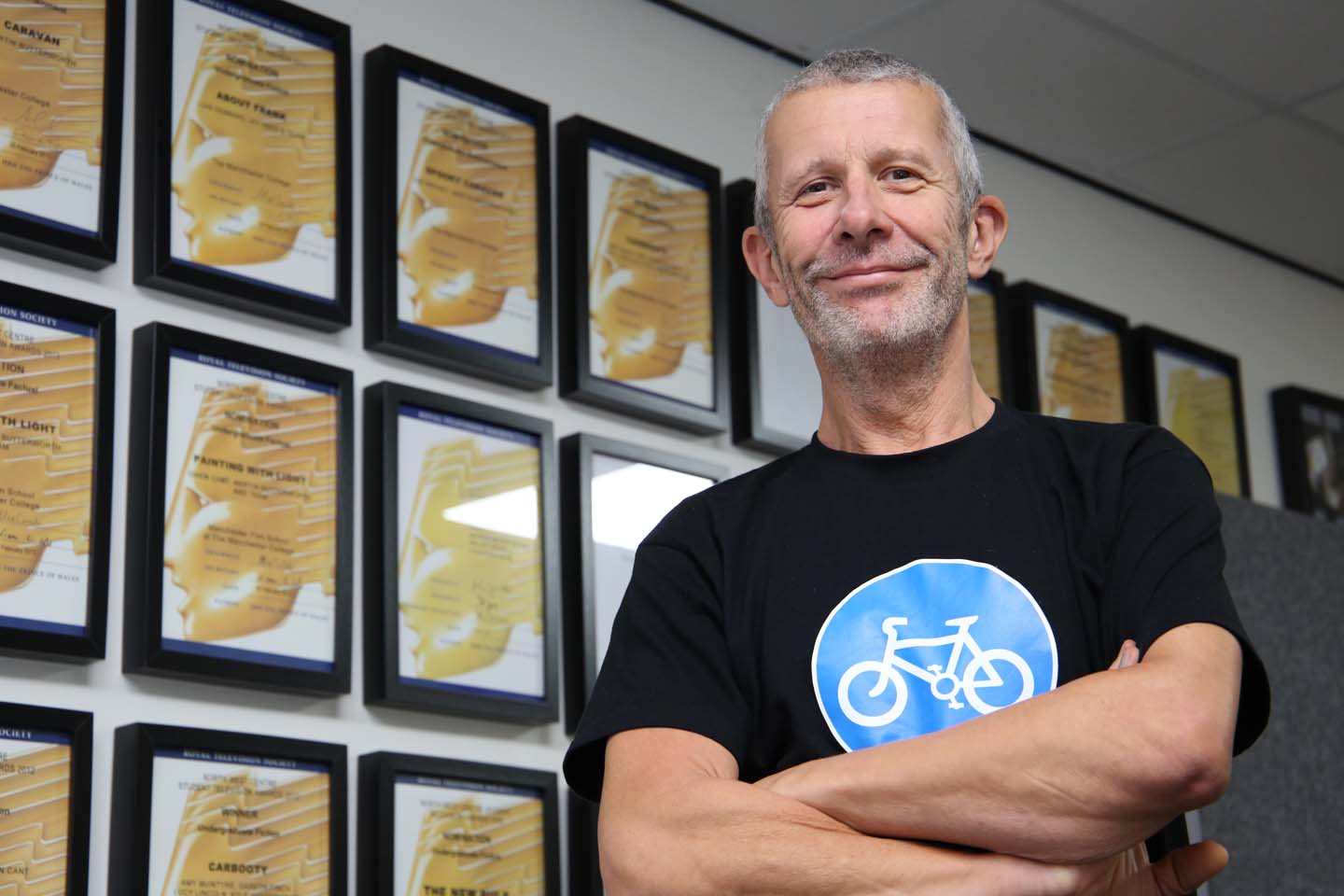Manchester Film School Makes the Final Cut
Read about how the ERA Licence and Box of Broadcasts promote and feature the successes of Manchester Film School students.

‘Northern Powerhouse’ is a phrase being bandied about a lot these days. But what does it mean? For students of the Manchester Film School at The Manchester College, it means a fairly ordinary-looking campus to the south of the city, in a quiet suburb devoid of any dark satanic mills.
In the leafy residential area of West Didsbury, a creative powerhouse of young talent is being nurtured and encouraged to blossom – and is helping to fuel a great British industry in the North-West.
So what’s the secret of Manchester Film School’s success?
Following their nominations for this years Learning on Screen awards, Jim Grainger, the director of Manchester Film School said “We are delighted to secure four out of five nominations in the Learning on Screen awards in 2018. Any student who wants to be a film maker needs to watch a wide variety of films and television, not just what is trending at the moment. It’s so important that students have easy access to complete TV programmes, and the ERA Licence enables us to legally access these (combined with BoB) easily and reliably.”
“We use professional freelancers from the film industry to mentor and teach our students,” says Jim. “Education staff support the students and monitor their learning and achievement, but the skills they need to succeed in the industry are best developed by those professionals working in that industry.”
Last year’s Learning on Screen awards were an endorsement of this policy, as Film School graduate Matthew Swallow won the Student Production College Higher Education Award for his film ‘Mr Perfect’, and fellow student James Oliver was awarded a Special Commendation for his ‘Stars on Mars’.
On the day ERA visited, professional cameraman Mike Parker (Alien 3,Mansfield Park, And Then There Were None, Spooks, etc.) was on set working with a crew of students filming their latest production. They had been at work since 11 that morning, and nobody was going home till 11 that night.
The previous week the crew had been filming on location on Formby Sands, where strong winds proved a challenge. But all the students were there and carried on filming regardless of the conditions.
Students themselves say that they really value the professional mentorship they receive, but also speak highly of the student mentoring system. ERA managed to speak to second year Charlotte Barlow, who took a quick break from working on the final days of filming before the end of term to give us some personal testimony.
“As a first year last year, I was mentored by a second year and it was so helpful,” said Charlotte. “The second years obviously knew a lot more than us but they weren’t as far above us as the third years – they were like gods!”
“Now I’ve been mentoring a first-year student myself, and I’m being mentored by a third year. It’s a great system, so supportive, and the responsibility develops you as a person as well.”
ERA and Box Of Broadcasts
The Manchester College has BoB – Box of Broadcasts – and an ERA licence, so that a huge repository of film and TV material is available for viewing and for critical scrutiny. But increasingly, some of the productions in the repository are featuring the names of graduates and of students as well.
“We encourage our third-year students to gain experience on productions and to get credits for doing this where possible,” explains Jim. “And graduates of the course will have worked with students in the years below them and will know their skills and their commitment, so they’ll recruit them as well.”
Students and graduates have worked on TV productions such as Downton Abbey, Last Tango in Halifax, Peaky Blinders and last but not least, Happy Valley – which recently scooped awards at the BAFTAs. Film credits include Dad’s Army, Bond films Quantum of Solace and Skyfall, Harry Potter and Maleficent.
Students are encouraged to enter competitions and the Film School has a glass cabinet full of awards as a result. They use their prize money (in one case, the sum of £20,000) to fund future film work and usually hire fellow students or graduates as crew.
When students first arrive at the Film School, they may have preconceptions about what they want to do, but once they’ve had a chance to try out different work roles (some of which they didn’t even know existed), they often change their mind. Charlotte came to the course thinking she wanted to be a director, for example, but found she loved working as a DIT – a Digital Imaging Technician.
“The beauty of the course is that it reflects industry practice,” comments Jim. “People work as a team here, not just within their year group – just as they will once they’re working in the industry.”
Name-checking of film and TV credits for students past (and sometimes present) has become a bit of an obsession for Manchester Film School staff. And with the course now past its tenth year of operation, that list of credits is growing longer all the time. This is one powerhouse that shows no sign of running out of energy any time soon!
